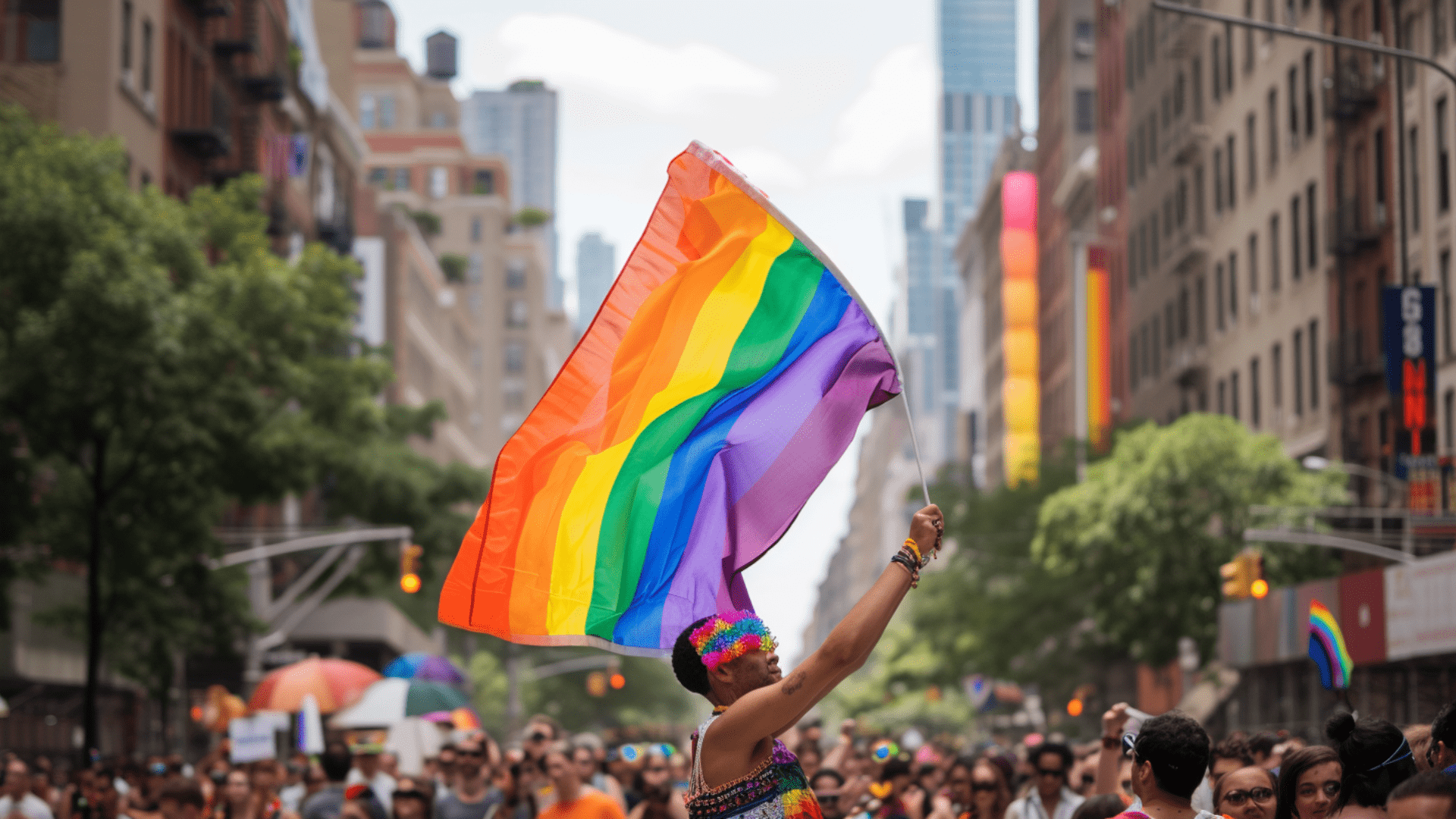Can you imagine a far-gone world where being yourself could land you in jail? That was the reality for many in the LGBTQ+ community before the Stonewall Riots of 1969. These riots didn’t just challenge injustice; they ignited a global movement for equality.
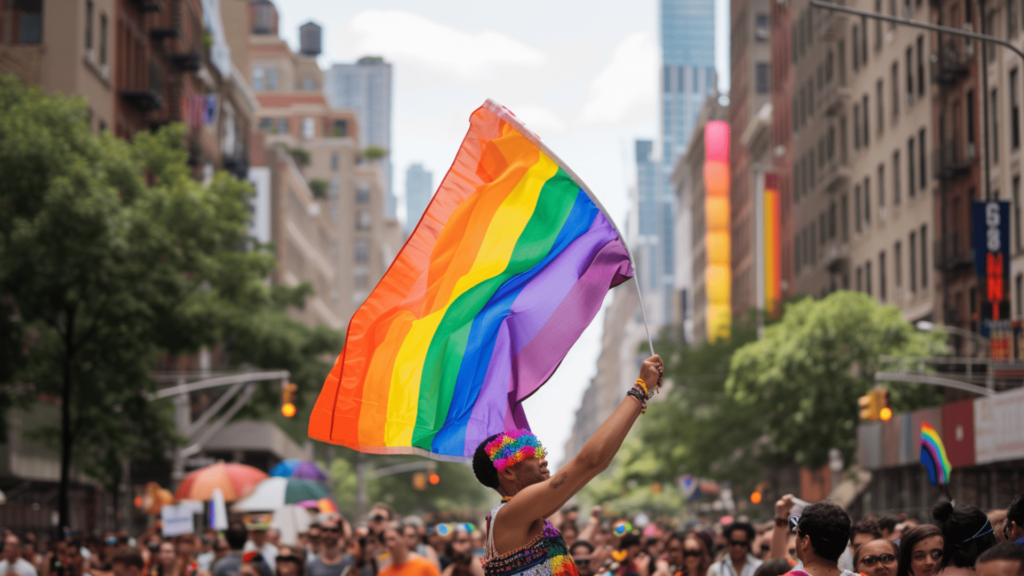
The 1969 Stonewall Riots, which occurred in New York City during the early hours of June 28th, marked a defining moment in the fight for LGBTQ+ rights. Before this, being openly gay was a criminal offense in many parts of the United States, with individuals facing systemic oppression and discrimination. Against this backdrop, the Stonewall Inn in NYC emerged not just as a bar but as a sanctuary for the marginalized LGBTQ+ community. But when police raided this haven, they sparked a fire, leading to a worldwide movement.
The significance of Stonewall can hardly be overstated. At a time when LGBTQ+ rights were close to non-existent, and individuals faced legal and societal persecution, the riots symbolized a turning point in the struggle for rights and recognition. Interestingly, a year after the 1969 Stonewall Riots, the first gay pride parades were held in U.S. cities like New York, Los Angeles, and San Francisco, signifying the movement’s growing momentum. These events now attract millions of participants globally each year, demonstrating the enduring impact of Stonewall.
As we delve into the profound impact and enduring legacy of the 1969 Stonewall Riots, let’s explore how this pivotal event sparked a revolution, influenced global movements, and continues to inspire the fight for equality and recognition in the LGBTQ+ community.
The 1969 Raid: Sparking a Revolution
The raid on the Stonewall Inn in 1969 was a pivotal moment in the LGBTQ+ rights movement. This event in New York’s Greenwich Village wasn’t an isolated incident but part of a broader pattern of police harassment and societal discrimination against the LGBTQ+ community. Unlike other raids, the response at Stonewall was one of fierce resistance. Patrons and bystanders fought back, sparking a series of protests that lasted several days.
Indeed, the events represented a turning point. They galvanized the LGBTQ+ community and sympathetic allies to demand change. In the following years, LGBTQ+ rights organizations proliferated, including the Gay Liberation Front and the Gay Activists Alliance. These groups advocated for civil rights, public acceptance, and legal reforms, marking a shift from more conservative approaches to more aggressive and visible activism.
Indeed, the impact of this upheaval extended far beyond New York City, inspiring activism and advocacy worldwide. The story of Stonewall is not just a narrative of resistance and defiance but also a testament to the power of community and solidarity in the face of oppression.
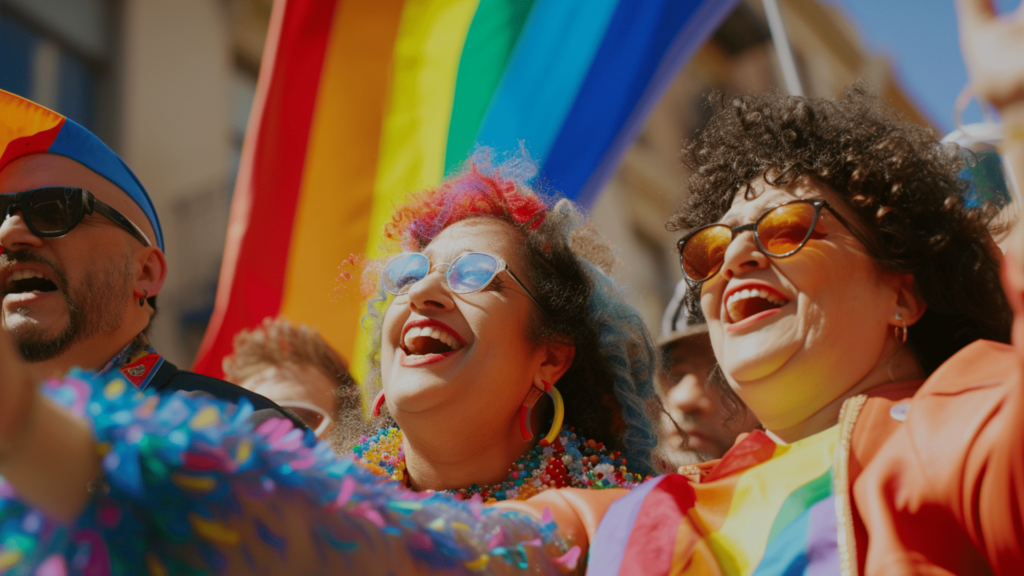
From Riots to Rights: The Ripple Effect of Stonewall
The Stonewall Riots in 1969 ignited a transformative movement that resonated far beyond the streets of Greenwich Village. Before Stonewall, the LGBTQ+ rights movement was fragmented and largely underground. However, the riots catalyzed a new era of activism and visibility. Communities mobilized in cities across America, from the Castro District in San Francisco to Chicago’s Boystown, drawing inspiration from Stonewall’s defiance.
The impact of Stonewall extended to the arts and culture, influencing a generation of artists, writers, and performers. The riots’ legacy inspired works that brought LGBTQ+ experiences to the forefront, challenging mainstream narratives and societal norms. Cultural events, like New York’s Harvey Milk High School and the Gay and Lesbian Film Festival, owe their inception to the post-Stonewall era’s climate of openness and activism.
Without a doubt, The 1969 Stonewall Riots were more than a clash with the police; they were the spark that ignited a global movement for equality. Their legacy lives on in the laws and policies that have changed since that year and the continued fight for LGBTQ+ rights worldwide.
Global Pride: 1969 Stonewall Riots’ Worldwide Impact
It’s incredible how the legacy of the Stonewall Riots back in ‘69 transcended national boundaries, inspiring a global movement for LGBTQ+ rights. Annual Pride events, now celebrated worldwide, are a direct consequence of the Stonewall uprising. From the vibrant streets of São Paulo, which hosts one of the world’s largest Pride parades, to the historic marches in cities like Berlin and Amsterdam, the influence of Stonewall is undeniable.
These global Pride events are more than just celebrations; they are powerful demonstrations of the ongoing fight for equality and acceptance. In cities like Tel Aviv, known for its inclusive atmosphere, and Madrid, which hostedWorldPride in 2017, these events draw millions, showcasing the diversity and resilience of the LGBTQ+ community. They serve as platforms for advocacy, bringing attention to issues still facing the community, from legal recognition of relationships to protection against discrimination and violence.
The international impact of the Stonewall Riots of 1969 is also evident in the growing recognition and protection of LGBTQ+ rights. Countries like Canada and the Land Down Under, Australia, have made significant strides in legal reforms, influenced by the activism sparked by Stonewall. These changes reflect a global shift towards greater acceptance and understanding of LGBTQ+ identities and experiences.
However, the fight for equality is far from over. In many parts of the world, LGBTQ+ individuals still face significant challenges and discrimination. Pride events, therefore, are not just celebrations but acts of solidarity in challenging the norms for equitable rights for all. They honor the legacy of Stonewall by continuing the fight for a world where everyone, regardless of their sexual orientation or gender identity, can live freely and openly.
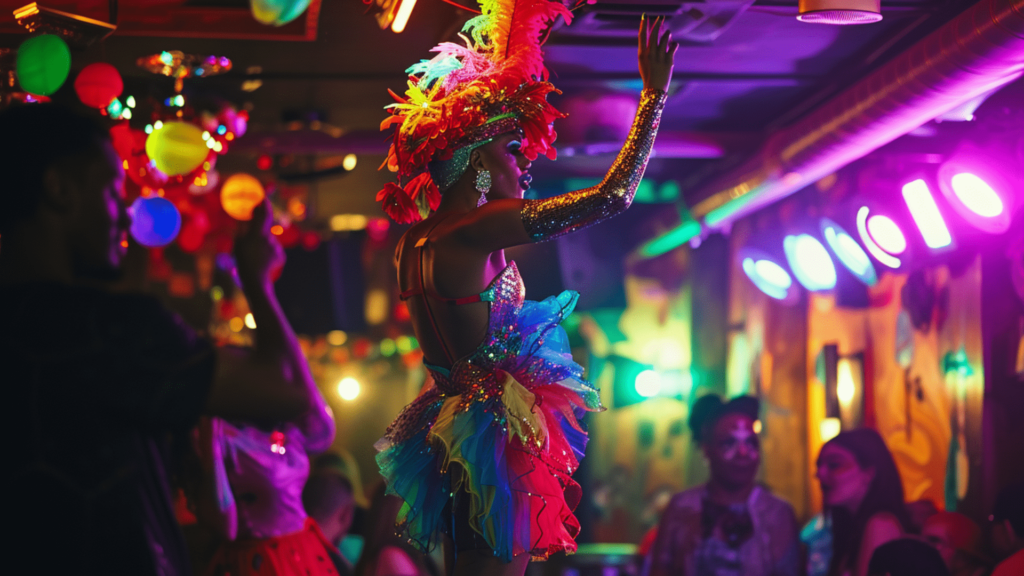
Preserving History: The Stonewall Inn Today
Today, the Stonewall Inn is a poignant symbol of the LGBTQ+ rights movement. The inn, located in the heart of Greenwich Village, continues to be a vibrant hub for the LGBTQ+ community and a pilgrimage site for those who seek to understand the roots of the modern gay rights movement.
The preservation of the Stonewall Inn is part of a broader effort to recognize and honor LGBTQ+ historical sites. This effort reflects a growing understanding of the importance of LGBTQ+ history in the broader human rights narrative. Across the United States and the world, cities are beginning to acknowledge the contributions and struggles of the LGBTQ+ community by preserving landmarks significant to their history.
Furthermore, the Stonewall National Monument, established adjacent to the inn, became recognized as a National Historic Landmark in 2016. The monument offers visitors a tangible connection to the events of June 1969. But more than that, it also serves as a reminder of the struggles and triumphs of the LGBTQ+ community. Educational programs and tours help visitors understand the riots’ historical context and lasting impact on society.
The ongoing relevance of the Stonewall Inn is a testament to the enduring fight for LGBTQ+ rights. While significant progress has been made, challenges remain, making the inn’s continued existence both a symbol of how far society has come and how much work is still needed. The Stonewall Inn, more than just a bar, is a living history lesson, a reminder of the power of standing up against injustice.
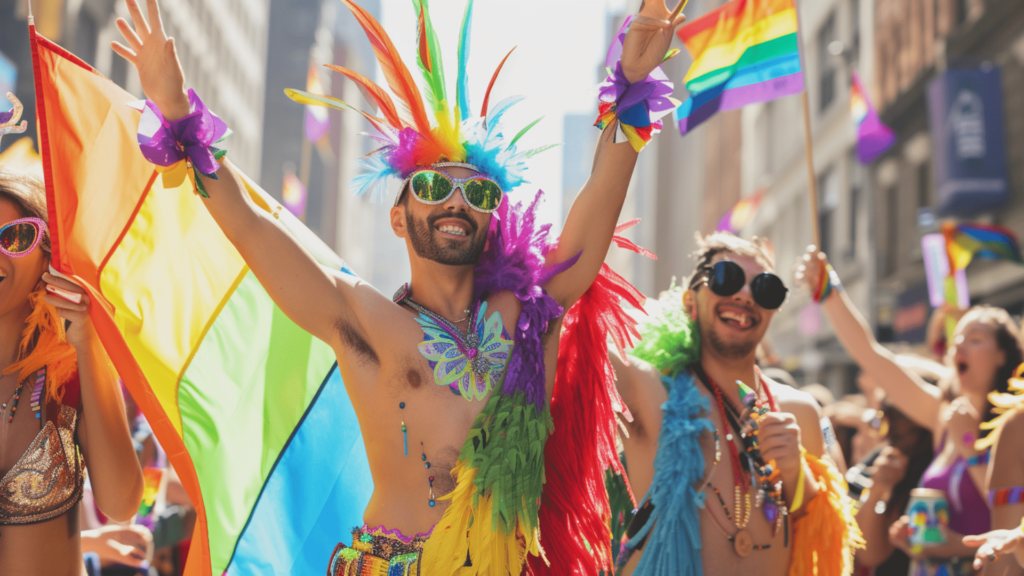
Embracing the Legacy of the Stonewall Riot of 1969
Revisiting the Stonewall Riots of ‘69 and their impact reminds us of the importance of solidarity and the power of collective action. As we honor the bravery of those who stood up at Stonewall, we must continue to fight for a world that embraces diversity and champions equality for all, regardless of sexual orientation or gender identity.
The call to action today is clear — to remain vigilant in the pursuit of equality, to educate future generations about the history and significance of events like the 1969 Stonewall Riots, and to actively participate in the ongoing struggle for LGBTQ+ rights. Let us carry forward the spirit of Stonewall, ensuring that the strides made in LGBTQ+ rights continue to grow and that the sacrifices of the past pave the way for a more inclusive and equitable future.
